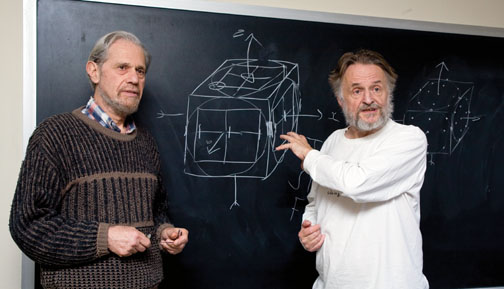FAYETTEVILLE, Ark. – John H. Conway, von Neumann Professor of Mathematics at Princeton University, Fellow of the Royal Society, and subject of the recent biography Genius at Play, will lecture on his "Free Will Theorem," on April 7.
The talk which is free and open to the public, is scheduled for 7 p.m. in Bell Engineering Center, Room 2282. Conway will also give a colloquium on Fermat Primes at 4:30 p.m. on April 5 in the Science Engineering Hall, Room 101.
The two theories that revolutionized physics in the twentieth century, relativity and quantum mechanics, are full of predictions that defy common sense. Recently, Conway and Professor Simon Kochen – a collegue of Conway at Princeton – used three such paradoxical ideas to prove the Free Will Theorum, the culmination of a series of theorems about quantum mechanics that began in the 1960s.
This theorem connects human free will with the Einstein-Podolsky-Rosen paradox in quantum mechanics. Roughly, if indeed we humans have free will, then elementary particles already have their own small share of this valuable commodity! More precisely, if the experimenter can freely choose the directions in which to orient his apparatus in a certain measurement, then the particle's response is not determined by the entire previous history of the universe.
The lecture is sponsored by the Department of Mathematical Sciences and the Department of Computer Science and Computer Engineering.
Contacts
Chaim Goodman-Strauss, professor
Department of Mathematical Sciences
479-575-3361, strauss@uark.edu
